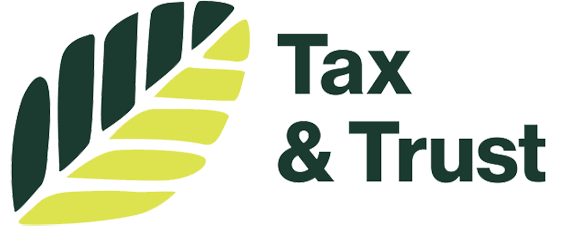Parties, Presents and Tax. GST Changes and Budgets

Parties and Presents – and Tax!
Are you planning a Christmas event for your clients? Is gift-giving on your to-do list?
Take a minute to refresh yourself on how much is deductible as a business-related expense.
Presents
Are you thinking of gifts for clients, business associates or team members?
If gifts consist of food or drink, you can only claim 50% of the expense as a tax deduction. If gift baskets or hampers contain some food or drink and some other goodies, the food or drink items are 50% deductible, but other gift items are 100% deductible.
Note that when you claim the tax deduction, you need to apportion the expense between the 100% deductible items and the 50% deductible items. Let us know the details.
Parties
The basics: an expense is business-related if you spend the money to help your business earn income. Business-related expenses are generally fully deductible.
If the expense does not help your business earn gross income, it is a private expense, not claimable as a deduction. Purely promotional events put your brand out there and are a marketing expense for the business. But entertainment events such as Christmas parties inhabit a grey area sometimes and may be limited to a 50% deduction.
You will need to make a GST adjustment for any entertainment expenses which are 50% deductible. This will be required when your income tax return is filed. We can help you with this.
Talk to us about your plans and we can advise you on the tax implications.

GST invoice rules are changing – making life easier
In case you missed our last newsletter here is the update about GST invoicing.
No more piles of receipts and invoices required!
Dealing with GST invoices will be much simpler under Inland Revenue’s new rules, which come into effect on 1 April, 2023. The goal is to modernise your record-keeping systems, which means you’ll be able to get closer to a completely paperless business.
Physical paperwork or PDFs no longer required
From April next year, you won’t need to keep a physical copy of a tax invoice, a credit note or a debit note. Your taxable information supply can be digital – included in your accounting software, in your transaction records or in contractual information.
New wording is coming into use – you no longer need to label your invoices as ‘Tax invoice’. The new wording is ‘taxable supply information’, but you don’t need to specify that on any invoices. It’s just the Inland Revenue’s way of explaining that certain information needs to be included on the documentation – you don’t need to make any alterations.
These changes are necessary to make e-invoicing legal, so without any actual paperwork or even a PDF moving around, your system-to-system invoices are still valid.
We’re here to help
If you’re not sure which records you need to keep, just give us a call or drop us a note. We can chat with you about how these changes might impact your business, and how you can use e-invoicing to reduce your risk of invoice fraud. Get in touch!

How to prepare your personal budget
A personal budget is a finance plan that allocates future personal income towards expenses, savings and debt repayments. In other words, it’s a plan that sets out how you’ll spend and save your money. This is more important than ever right now.
Some people hear the words ‘Personal Budget’ and think restriction, limitation and confinement. They imagine having to cut all spending and live on bread and water.
Instead, think of it as your spending plan. By planning how you’ll spend your money, you’ll feel liberated and be able to spend guilt free, knowing money has already been set aside to cover your expenses. By putting a plan in place, you’ll no longer feel like you’re going to run out of money before the end of the week or month.
So, how do you prepare your personal budget? It’s easiest to start with a template. Either an Excel spreadsheet, an app or a website. Your budget should be set up for a 12 month period, with all income and expenses broken down on a monthly basis. We have a complimentary Personal Budget template available to our clients.
Ensure that your budget contains the following components:
1. Income. This includes business drawings, salary/wages, interest, dividends, rental income, and any other income you may receive. If you receive income weekly, multiply your weekly amount by 52 then divide by 12 to calculate your monthly average. If you receive it fortnightly, multiply by 26 then divide by 12.
2. Expenses. Expenses should be split into key categories, e.g. household, food, apparel, children, medical, insurance, transport, lifestyle, and debt repayment. Irregular expenses such as annual rates or insurance payments, school supplies and uniforms, or holidays, should be allocated to the month they’re paid. This allows you to plan for those months you’ll have higher outgoings than normal.
3. Monthly Cash Summary. This should show your cash surplus or deficit for each month as well as for the year. If your budget has resulted in a deficit, review your expenses and identify areas to reduce your spending.
4. Actual vs budget. You should be able to easily compare your actual monthly spend to your budget. Set aside an hour or two each month to input your actual figures and reset your budget for the remaining months if necessary.
The key to a successful budget is to be completely honest about your spending habits. It’s best practice to review your bank statements to analyse your current spending. Inputting this information into the budget may be an eye-opener, but it will help you understand where your money goes and allow you to make adjustments. Even small adjustments add up over time.
The budget should be personal to you and your family and should reflect your overarching family goals. Your goal may be to reduce debt by spending less on lifestyle expenses. Or maybe you want to take a family holiday, so you reduce your food spend.
The key to achieving your financial goals is to understand where your money goes and develop better control over your money. Making a plan for your money and setting personal wealth goals will ultimately result in more money and less stress.
Contact us if you’d like a copy of our Personal Budgeting Template to develop your spending plan. View the recording of our Personal Budget webinar here .
